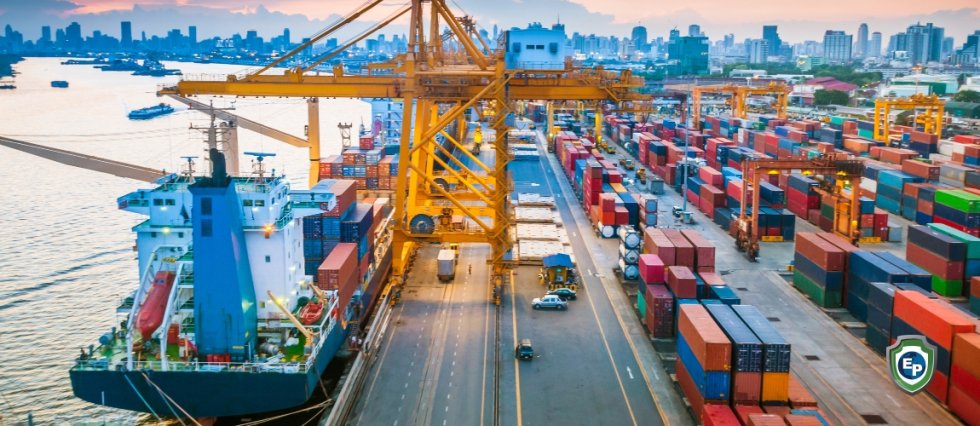Incoterms: Carriage and Insurance Paid To (CIP)
For any Incoterms rule, there are specific obligations the seller and buyer must abide by. Read our blog and find out what rules you must follow under CIP.

Carriage and Insurance Paid To (CIP) is an Incoterms rule that requires the seller to pay for insurance and other necessary costs while delivering goods to the carrier. The risk ends for the seller as soon as the goods reach the first carrier. It is mainly ideal for international/multimodal transport but can be for any transport mode as well. It can be similar to CPT, but under CIP, the seller must provide all of the necessary insurance documents for the buyer and should take out insurance cover at 110% of the sale contract value, under policies like Institute Cargo Clauses (A) and Institute Cargo Clauses (Air).
Seller and Buyer Obligations
Under CIP, both the seller and the buyer have certain obligations they must abide by. Take a look at the chart below for more details:
Seller’s Obligations
General - Deliver the goods and commercial invoice.
Buyer’s Obligations
General - Pay the price of the goods as agreed in the contract of sale.
Seller’s Obligations
Delivery - Bring the goods to the agreed location and date.
Buyer’s Obligations
Delivery - Take the goods after they are delivered. Must physically receive them at the agreed destination.
Seller’s Obligations
Risks - Responsible for all of the risks until goods are delivered.
Buyer’s Obligations
Risks - Responsible for all of the risks once the seller delivers the goods. Must follow the contract and inform the seller when receiving the goods.
Seller’s Obligations
Carriage - Must contract carriage of goods.
Buyer’s Obligations
Carriage - No obligation.
Seller’s Obligations
Insurance - Must insure goods at the seller’s own cost.
Buyer’s Obligations
Insurance - No obligation.
Seller’s Obligations
Delivery/transport document - Must provide a transport document for the buyer.
Buyer’s Obligations
Delivery/transport document - Must accept the document.
Seller’s Obligations
Export/Import clearance - Responsible for all export clearance expenses. Must also assist with import/transit clearances if requested by the buyer.
Buyer’s Obligations
Export/Import clearance - Must assist the seller with export clearance and pay for import clearance and all formalities.
Seller’s Obligations
Checking - Must pay for all checking operations like weighing/counting the goods, packaging, etc.
Buyer’s Obligations
Checking - No obligation.
Seller’s Obligations
Allocation of cost - Must pay all costs until goods are delivered. Also responsible for charges related to proof of delivery, export clearance, etc. Must also pay for costs that come with helping the buyer obtain certain documents.
Buyer’s Obligations
Allocation of cost - Must pay from the time when the goods have been delivered. If the buyer requests the seller for assistance, the buyer must pay for any costs that may come up during the process. Must pay for any taxes or duties for import clearance and additional charges caused by the carrier unless paid by the seller.
Seller’s Obligations
Notices - Must notify the buyer when goods have been delivered.
Buyer’s Obligations
Notices - Must notify the seller of the destination and time.

Things to Look Out For
To protect the goods from unforeseen risks, the buyer should arrange additional insurance coverage beyond the minimum amount required by the seller. If not, when the shipment of goods gets lost or damaged, the buyer will end up with huge losses. The buyer should ask the seller to provide extra insurance coverage as well. If possible, ask the seller to pay for some or all of the cost of the additional insurance.
Learn More with Export Portal
Was this article helpful? If so, make sure to check out our site for more!






Comments 0